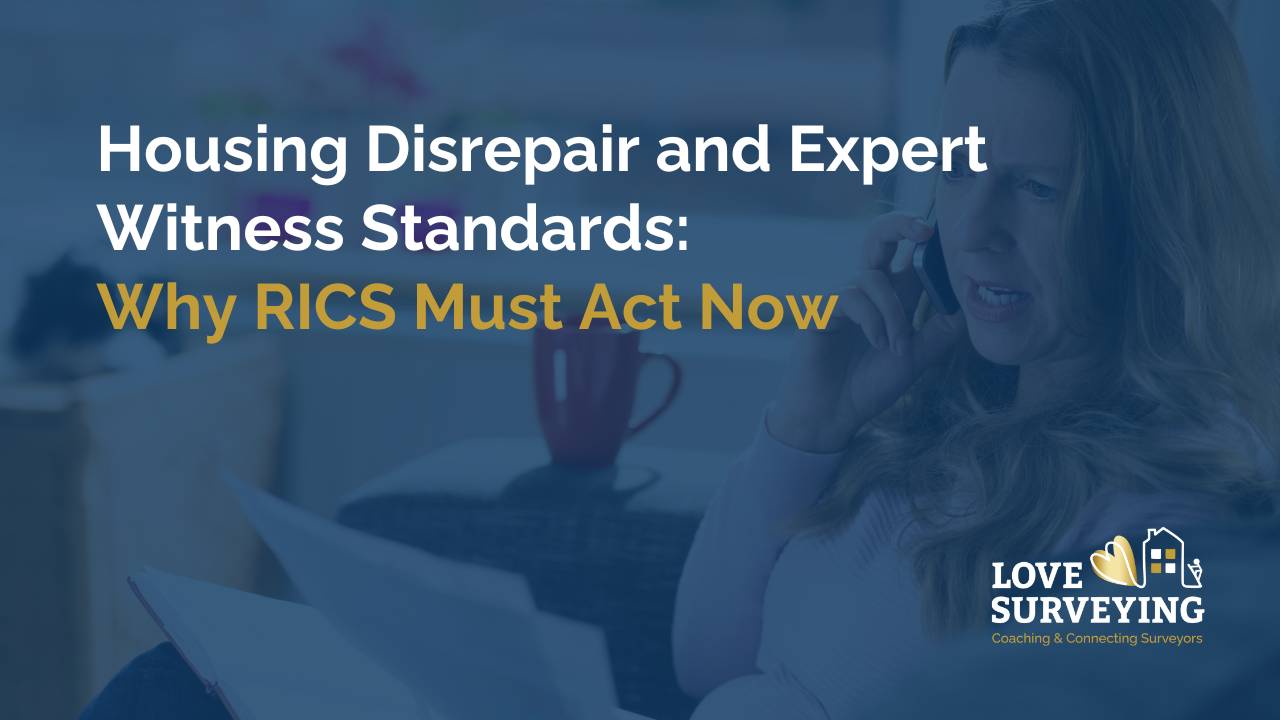Surveyors - Pay Attention to RICS Disciplinary Cases

This week, I’ve been following a RICS disciplinary hearing regarding a firm's practices in conducting home surveys - honestly, it hasn’t been pleasant. As I write, the hearing is still ongoing, so it’s inappropriate to comment on specifics, but I do have some broader reflections that all surveyors, whether you're early in your career or well-established, should take seriously.
Where to listen:
Though listed on the RICS website, these hearings can be easy to miss. They aren't widely advertised - perhaps something that could be better addressed through a regular membership email or in the RICS online community.
Here is the link to the current page listing forthcoming panel hearings.
Every surveyor, especially trainees, students, and newly qualified professionals, should prioritise seeking these out and listening in. The hearings offer valuable insight into how disciplinary actions are conducted, what kind of preparation is required, and the reality of defending yourself when things go wrong.
It’s a sobering experience, one that might deter many, but it's crucial learning. I would strongly advise that no one engages in such hearings without their own legal advisor. You are not only facing a panel and a barrister, but the costs can also be significant. A recent case ran for a week, costing the former member around £26,000 after a failed appeal.
Background:
RICS Regulation does not investigate every complaint made - and this is a mistake, particularly when the complaint comes from a consumer. Consumers need reassurance and confidence in our profession. In the case I’m observing, both consumers and former non-RICS member employees have bravely provided evidence and statements despite facing questioning from someone they’ve had a negative experience.
A case like this takes years to gather evidence and develop, involving complex allegations and extensive documentation. However, it raises an important question: How much could have been addressed earlier through better regulation and intervention? Early action could save not only financial costs and reputational damage but, more importantly, reduce risks for consumers. Does the drive to discipline, reprimand, and issue membership sanctions take precedence over reducing the immediate risk of more consumers being disadvantaged?
The cases listed on the website are the ones we hear about - but how many more are quietly brushed under the carpet?
When this disciplinary case reaches a conclusion, the decision will be published on the RICS website, but it won’t convey the details or context that many need to understand in order to avoid making the same mistakes. It’s easy to label someone as a bad apple who flouts the rules—but while that may be true in some cases, these hearings often expose significant gaps in regulatory knowledge and compliance. What we don’t see discussed is what will be done to address these gaps.
I’ve written to RICS urging them to share this learning with members more widely. I also hope that those involved in the ongoing review of the home survey standards make themselves familiar with the case. Consumers deserve to know what good looks like, but it seems so do many surveyors.
And a final, important point:
Many of us have administrative staff in our businesses. These individuals are often the linchpins that keep our operations running smoothly, yet they are rarely paid well or given the recognition they deserve. In many cases, they are just as competent—if not more so—than some surveyors, but they’ve not had the opportunity or privilege to become qualified. Ironically, it is often these staff members who are brave enough to stand up when something is wrong.
As in the firm currently facing disciplinary action, many RICS members—students, qualified professionals, and firms providing training and support—have likely been aware of questionable practices but stayed silent. My message to all of you: we need to do better in calling out these practices. Silence only perpetuates the problem.
Enjoy this article? You might also like Why Your Complaint-Handling Procedure Builds Trust.
Find this content useful? I'd love to hear your suggestions and recommendations. If you found this article helpful, please share it and show your support by leaving me a Google review, or you can Buy Me a Coffee. As a small business, it makes all the difference.





